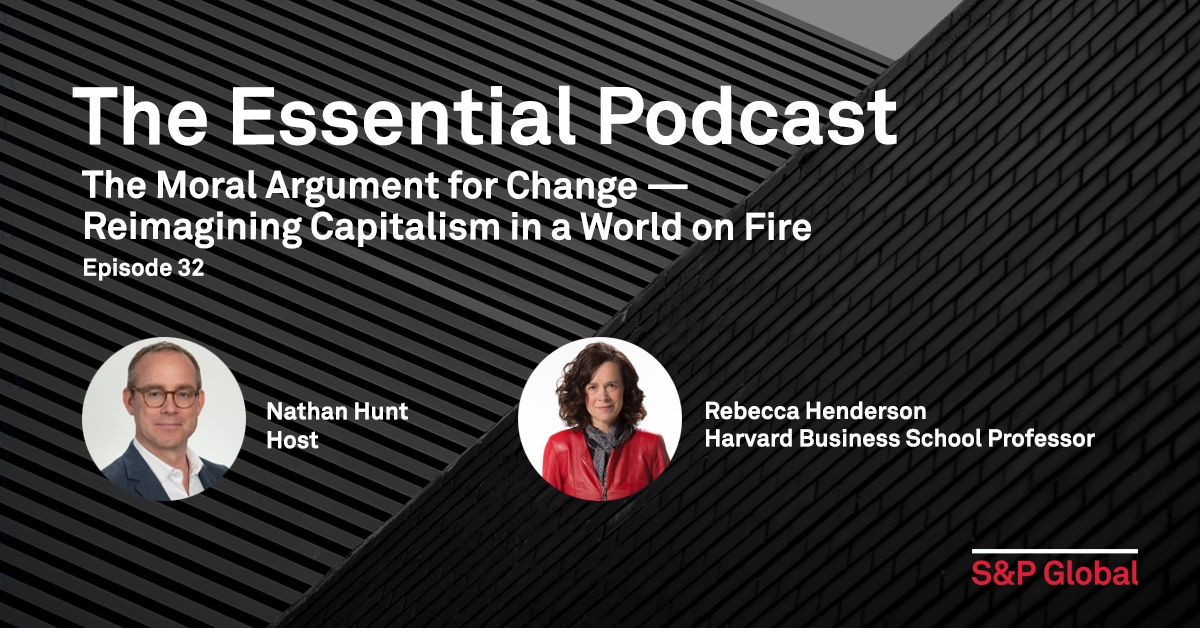Featured Topics
Featured Products
Events
S&P Global Offerings
Featured Topics
Featured Products
Events
S&P Global Offerings
Featured Topics
Featured Products
Events
S&P Global Offerings
Featured Topics
Featured Products
Events
Language
Featured Products
Ratings & Benchmarks
By Topic
Market Insights
About S&P Global
Corporate Responsibility
Culture & Engagement
Featured Products
Ratings & Benchmarks
By Topic
Market Insights
About S&P Global
Corporate Responsibility
Culture & Engagement
Podcast — 01 Mar, 2021

The global economy is experiencing a prisoner’s dilemma. In a post-pandemic world, how moral will capitalism become? Harvard Business School professor Rebecca Henderson, who studies how the private sector can play a major role in building a more sustainable economy, operates as a consultant, and is the author of “Reimagining Capitalism in a World on Fire,” joins the Essential Podcast to talk about morality, capitalism, the role of the individual, and the importance of governments in a moment of crisis.
The Essential Podcast from S&P Global is dedicated to sharing essential intelligence with those working in and affected by financial markets. Host Nathan Hunt focuses on those issues of immediate importance to global financial markets – macroeconomic trends, the credit cycle, climate risk, energy transition, and global trade – in interviews with subject matter experts from around the world.
Listen and subscribe to this podcast on our Apple Podcasts, Spotify, Google Podcasts, Deezer, and our podcast page.